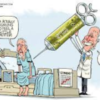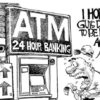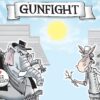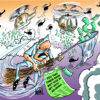Bonanza
![]()
(49) Bonanza Theme Song – YouTube
Bonanza

From Wikipedia, the free encyclopedia (Redirected from Bonanza (TV show))Jump to navigationJump to searchThis article is about the television program. For other uses, see Bonanza (disambiguation).
| Bonanza | |
|---|---|
| Genre | Western |
| Created by | David Dortort |
| Starring | Lorne GreenePernell RobertsDan BlockerMichael LandonGuy WilliamsVictor Sen YungDavid CanaryMitch VogelRay TealBing RussellTim MathesonLou Frizzell |
| Theme music composer | Ray Evans Jay Livingston |
| Opening theme | “Bonanza” |
| Ending theme | “Bonanza” |
| Composers | David RoseWalter ScharfHarry SukmanFred SteinerWilliam Lava |
| Country of origin | United States |
| Original language | English |
| No. of seasons | 14 |
| No. of episodes | 431 (list of episodes) |
| Production | |
| Executive producers | David DortortMark Roberts |
| Producers | Fred HamiltonRobert BleesRichard Collins |
| Running time | 49 minutes |
| Production company | NBC[1] |
| Distributor | NBC |
| Release | |
| Original network | NBC |
| Picture format | NTSC |
| Audio format | Mono |
| First shown in | United States |
| Original release | September 12, 1959 – January 16, 1973 |
| Chronology | |
| Followed by | Ponderosa |
Bonanza is an American Western television series that ran on NBC from September 12, 1959, to January 16, 1973. Lasting 14 seasons and 431 episodes, Bonanza is NBC’s longest-running western, the second-longest-running western series on U.S. network television (behind CBS’s Gunsmoke), and within the top 10 longest-running, live-action American series. The show continues to air in syndication. The show is set in the 1860s and centers on the wealthy Cartwright family, who live in the vicinity of Virginia City, Nevada, bordering Lake Tahoe. The series initially starred Lorne Greene, Pernell Roberts, Dan Blocker and Michael Landon and later featured (at various times) Guy Williams, David Canary, Mitch Vogel and Tim Matheson. The show is known for presenting pressing moral dilemmas.[2]
The title “Bonanza” is a term used by miners in regard to a large vein or deposit of silver ore,[3] from Spanish bonanza (prosperity) and commonly refers to the 1859 revelation of the Comstock Lode of rich silver ore mines under the town of Virginia City, not far from the fictional Ponderosa Ranch that the Cartwright family operated. The show’s theme song, also titled “Bonanza“, became a hit song. Only instrumental renditions, absent Ray Evans’ lyrics, were used during the series’s long run.[4]
In 2002, Bonanza was ranked No. 43 on TV Guide‘s 50 Greatest TV Shows of All Time,[5] and in 2013 TV Guide included it in its list of The 60 Greatest Dramas of All Time.[6] The time period for the television series is roughly between 1861 (Season 1) and 1867 (Season 13) during and shortly after the American Civil War, coinciding with the period Nevada Territory became a U.S. state.
During the summer of 1972, NBC aired reruns of episodes from the 1967–1970 period in prime time on Tuesday evening under the title Ponderosa.[7]
Contents
- 1Premise
- 2Cast
- 2.1Lorne Greene – Ben Cartwright
- 2.2Pernell Roberts – Adam Cartwright
- 2.3Dan Blocker – Hoss Cartwright
- 2.4Michael Landon – Joseph “Little Joe” Cartwright
- 2.5Guy Williams – Will Cartwright
- 2.6Ray Teal – Sheriff Roy Coffee
- 2.7David Canary – “Candy” Canaday
- 2.8Victor Sen Yung – Hop Sing
- 2.9Mitch Vogel – Jamie Hunter/Cartwright
- 2.10Tim Matheson – Griff King
- 2.11Lou Frizzell – Dusty Rhodes
- 2.12Cast episode count
- 3Episodes
- 4Broadcast history and ratings
- 5Awards
- 6Production
- 7Social issues addressed
- 8Bonanza merchandise
- 9Cancellation and revival
- 10Legacy
- 11See also
- 12Citations
- 13General bibliography
- 14External links
Premise[edit]
Approximate location of the fictional Ponderosa Ranch, the home of Cartwright family. The map is oriented with North at the top (instead of East at the top, as in the map shown on the program).
The show chronicles the weekly adventures of the Cartwright family, headed by the thrice-widowed patriarch Ben Cartwright (Lorne Greene). He had three sons, each by a different wife: the eldest was the urbane architect Adam Cartwright (Pernell Roberts), who built the ranch house; the second was the warm and lovable giant Eric “Hoss” Cartwright (Dan Blocker); and the youngest was the hotheaded and impetuous Joseph, or “Little Joe” (Michael Landon). Via exposition (S01:E01 – “Rose for Lotta”) and flashback episodes, each wife was accorded a different ancestry: English (S02:E65 – “Elizabeth My Love”), Swedish (S03:E95 – “Inger My Love”), and French Creole (S04:E120 – “Marie My Love”) respectively. The family’s cook was Chinese immigrant Hop Sing (Victor Sen Yung). Greene, Roberts, Blocker, and Landon were billed equally; the opening credits would alternate the order among the four stars.
The family lived on a thousand square-mile (2,600 km2) ranch called the Ponderosa on the eastern shore of Lake Tahoe in Nevada opposite California on the edge of the Sierra Nevada range.[8] The vast size of the Cartwrights’ land was quietly revised to “half a million acres” (2,000 km2) on Lorne Greene’s 1964 song, “Saga of the Ponderosa”. The ranch name refers to the ponderosa pine, common in the West. The nearest town to the Ponderosa was Virginia City, where the Cartwrights would go to converse with Sheriff Roy Coffee (played by veteran actor Ray Teal), or his deputy Clem Foster (Bing Russell).
Bonanza was considered an atypical western for its time, as the core of the storylines dealt less about the range but more with Ben and his three dissimilar sons, how they cared for one another, their neighbors, and just causes.
“You always saw stories about family on comedies or on an anthology, but Bonanza was the first series that was week-to-week about a family and the troubles it went through. Bonanza was a period drama that attempted to confront contemporary social issues. That was very difficult to do on television. Most shows that tried to do it failed because the sponsors didn’t like it, and the networks were nervous about getting letters,” explains Stephen Battaglio, a senior editor for TV Guide magazine.[9]
Episodes ranged from high drama (“Bushwhacked”, episode #392, 1971; “Shanklin”, episode #409, 1972), to broad comedy (“Hoss and the Leprechauns”, episode #146, 1964; “Mrs. Wharton and the Lesser Breeds”, episode #318, 1969; “Caution, Bunny Crossing”, episode #358, 1969), and addressed issues such as the environment (“Different Pines, Same Wind”, episode #304, 1968), substance abuse (“The Hidden Enemy”, episode #424, 1972), domestic violence (“First Love”, episode #427, 1972), anti-war sentiment (“The Weary Willies”, episode #364, 1970), and illegitimate births (“Love Child”, episode #370, 1970; “Rock-A-Bye Hoss”, episode #393, 1971). The series sought to illustrate the cruelty of bigotry against: Asians (“The Fear Merchants”, episode #27, 1960; “The Lonely Man”, episode #404, 1971), African-Americans (“Enter Thomas Bowers”, episode #164, 1964; “The Wish”, episode #326, 1968; “Child”, episode #305, 1969), Native Americans (“The Underdog”, episode #180, 1964; “Terror at 2:00”, episode #384, 1970), Jews, (“Look to the Stars”, episode #90, 1962); Mormons (“The Pursued”, episodes #239–40, 1966), the disabled (“Tommy”, episode #249, 1966) and “little people” (“It’s A Small World”, episode #347, 1968).
Cast[edit]
Though not familiar stars in 1959, the cast quickly became favorites of the first television generation. The order of billing at the beginning of the broadcast appeared to be shuffled randomly each week, with no relation whatsoever to the current episode featured that week. The main cast of actors portraying Cartwrights is listed here in the order of their characters’ ages, followed by an array of recurring supporting players:
Lorne Greene – Ben Cartwright[edit]
Lorne Greene as Ben Cartwright
Born in Ottawa, Ontario, Canada, to Russian-Jewish parents,[10][11] Lorne Greene was chosen to play widowed patriarch Ben Cartwright. Early in the show’s history, he recalls each of his late wives in flashback episodes. A standard practice with most westerns was to introduce some romance but avoid matrimony. Few media cowboys had on-screen wives. Any time one of the Cartwrights seriously courted a woman, she died from a malady, was abruptly slain, or left with someone else.
Greene appeared in all but fourteen Bonanza episodes. Greene was 44 years old at the beginning of the series while Pernell Roberts and Dan Blocker, who portrayed two of his sons, were both 31, only thirteen years younger.
In 2007, a TV Guide survey listed Ben Cartwright as television’s #2 favorite dad.[12]
Pernell Roberts – Adam Cartwright[edit]
Pernell Roberts as Adam Cartwright
Pernell Roberts played eldest son Adam, an architectural engineer with a university education. Adam built the impressive ranch house.[13][14] Despite the show’s success, Roberts departed the series after the 1964–65 season (202 episodes) and returned to stage productions, allegedly because of clashes over the show’s direction.
Attempts to replace Adam with Little Joe’s maternal half-brother Clay (Barry Coe) and Cartwright cousin Will (Guy “Zorro” Williams), were unsuccessful.[15] Creator David Dortort introduced a storyline that would keep the character of Adam in the mix, but with a lighter schedule. During season five Adam falls for a widow with a young daughter, while making Will Cartwright a central figure. Roberts decided to stay an additional season, so the scripts were quickly revised by having Adam’s fiancée and her daughter depart the series prematurely with Guy Williams’ Will, with whom she’d fallen in love. It was Landon, not Roberts, who objected to the infusion of any new Cartwrights.[11][15] After Roberts did leave the following year, it was eventually mentioned that Adam had gone “to sea”, and in the later movies he had emigrated to Australia and had a son Adam ‘A.C.’ Cartwright, Jr. In mid 1972, the series producers considered inviting Roberts back in the wake of Dan Blocker’s death: “One suggestion was to return Pernell Roberts, who had played another Cartwright son when Bonanza first premiered on NBC fourteen years ago. We only considered that briefly, [producer Richard Collins says] Some people felt it was a logical step—the oldest son returning at a time of family need—but most of us didn’t think it would work.'”[16]
In a 1971 episode, called “A Home for Jamie,” when Jamie is officially adopted as a Cartwright, Ben Cartwright takes Jamie to a witness tree on which are carved the names of Hoss and Joe. Adam’s name is clearly missing. Jamie carved his name under that of Hoss and Joe, as a son of Ben Cartwright.
Dan Blocker – Hoss Cartwright[edit]
For the U.S. Marine Corps general nicknamed “Hoss”, see James Cartwright.Dan Blocker as “Hoss” Cartwright
Dan Blocker was 6 feet 4 inches and 320 pounds (1.93m, 145 kg)[17] when chosen to play the gentle middle son Eric, almost always referred to as “Hoss.” The nickname was used as a nod to the character’s ample girth,[18] an endearing term for “big and friendly”, used by his Swedish mother (and Uncle Gunnar).[19] In the Bonanza flashback,[20] his mother Inger names him Eric after her father. To satisfy young Adam, Inger and Ben agree to try the nickname Hoss and “see which one sticks.” Inger says of “Hoss”, “In the mountain country, that is the name for a big, friendly man.” According to a biography,[11] the show’s crew found Blocker to be the “least actor-ish as well as the most likeable” cast member. According to producer David Dortort: “Over the years he gave me the least amount of trouble.”[11]Dan Blocker as Hoss Cartwright
In May 1972, Blocker died suddenly from a post-operative pulmonary embolism following surgery to remove his gall bladder. The producers felt nobody else could continue the role. It was the first time a TV show’s producers chose to kill off a young major male character (though it was done twice previously with young female leads—in 1956 on Make Room For Daddy, and again in 1963 with The Real McCoys). Not until the TV movie Bonanza: The Next Generation was it explained that Hoss had drowned attempting to save a woman’s life.[citation needed].[21] According to director Don Richardson who had directed the actor in many episodes, Dan Blocker had a photographic memory, and could memorize the lines by just reading the script once.
Michael Landon – Joseph “Little Joe” Cartwright[edit]
Michael Landon as Little Joe Cartwright
The role of “Little Joe” was given to Michael Landon. He played guest roles on several TV westerns and attained the title role in I Was a Teenage Werewolf. He portrayed the youngest Cartwright son, whose mother (Felicia in the pilot, and later changed to Marie) was of French Creole descent. Landon began to develop his skills in writing and directing Bonanza episodes, starting with “The Gamble.” Most of the episodes Landon wrote and directed were dramas, including the two-hour, “Forever” (1972), which was recognized by TV Guide as being one of television’s best specials (November 1993).[vague] Landon’s development was a bit stormy according to David Dortort, who felt that the actor grew more difficult during the last five seasons the show ran.[22] Landon appeared in all but fourteen Bonanza episodes for its run, a total of 416 episodes.
Beginning in 1962, a foundation was being laid to include another “son” as Pernell Roberts was displeased with his character. In the episode “First Born” (1962), viewers learn of Little Joe’s older, maternal half-brother Clay Stafford. The character departed in that same episode, but left an opportunity for a return if needed. This character’s paternity is open to debate. In the 1963 flashback episode “Marie, My Love”, his father was Jean De’Marigny. Then in 1964, Lorne Greene released the song “Saga of the Ponderosa”,[22] wherein Marie’s previous husband was “Big Joe” Collins, who dies saving Ben’s life. After Ben consoles Marie, the two bond and marry. They choose to honor “Big Joe” by calling their son “Little Joe”. So, whether to Stafford, De’Marigny or Collins, Marie Cartwright was previously married. In the last of the three Bonanza TV movies, it is revealed that “Little Joe” had died in the Spanish–American War – a member of the “Rough Riders“. Little Joe had a son Benjamin ‘Benj’ Cartwright who was seen in all three Bonanza TV movies.
Guy Williams – Will Cartwright[edit]
Guy Williams was slated in 1964, the year that Bonanza hit #1 in the ratings, to replace Pernell Roberts upon Roberts’ departure, enabling the series to preserve the four-Cartwright format for the run of the series. His character, Ben’s nephew Will Cartwright, was introduced and was the lead character in five episodes, receiving “Starring” billing after the four original rotating Cartwrights during his second appearance going forward, but Roberts changed his mind later and decided to stay for one more season, whereupon Williams found himself pushed out of the part; it was rumored that Michael Landon and Lorne Greene felt threatened by the studio initiating a precedent of successfully replacing one heroic leading man Cartwright with a new one, particularly in view of Williams’ popularity with viewers. Williams had previously portrayed the titular character in Walt Disney‘s Zorro television series, and went on to play the lead in Lost in Space, a science fiction television series, after the role in Bonanza ended.
Ray Teal – Sheriff Roy Coffee[edit]
Veteran character actor Ray Teal essayed the role of Sheriff Roy Coffee on 98 episodes from 1960 to 1972.[23] He appeared in more than 250 movies and some 90 television programs during his 37-year career. His longest-running role was as Sheriff Roy Coffee. He had played a sheriff many times in films and television.
Sheriff Coffee was occasionally the focus of a plot as in the episode “No Less a Man” (broadcast March 15, 1964). A gang of thieves has been terrorizing towns around Virginia City and the town council wants to replace Coffee, whom they consider over-the-hill, with a younger sheriff before the gang hits town, not realizing that they’d been spared earlier because the gang’s leader was wary of Coffee’s longevity and only acquiesced to rob the Virginia City bank after extreme pressure from other gang members. Coffee ends up showing the town that youth and a fast gun don’t replace experience.
David Canary – “Candy” Canaday[edit]
After graduating from the University of Cincinnati, David Canary was offered a left-end position with the Denver Broncos,[11] but pursued acting and singing. In 1967, he joined the cast as “Candy” Canaday, a plucky Army brat turned cowboy,[24] who became the Cartwrights’ confidant, ranch foreman and timber vessel captain. Dortort was impressed by Canary’s talent, but the character vanished in September 1970, after Canary had a contract dispute. He returned two seasons later after co-star Dan Blocker’s death, reportedly having been approached by Landon. Canary played the character on a total of 93 episodes.[23] Canary joined the cast in Season 9.
Victor Sen Yung – Hop Sing[edit]
Chinese American actor Victor Sen Yung played the Cartwrights’ happy-go-lucky cook, whose blood pressure rose when the family came late for dinner. Cast here as the faithful domestic, the comedy relief character had little to do beyond chores. He once used martial arts to assail a towering family foe.[25] Though often referenced, Hop Sing only appeared in an average of eight to nine shows each season. As a semi-regular cast member, Sen Yung was only paid per episode. After 14 years, he was widely known, but making far less than his Ponderosa peers. The Hop Sing character was central in only two episodes: “Mark of Guilt” (#316)[26] and “The Lonely Man” (#404). Bonanza series creator David Dortort told the Archive of American Television that the “Hop Sing” character generated massive fandom – “Victor was just absolutely delightful. He loved the part; he loved doing it. In fact, he began to develop fans, to the extent that I wrote him in as the feature part in a number of shows.”[26]
Mitch Vogel – Jamie Hunter/Cartwright[edit]
After Canary’s departure in mid-1970, and aware of the show’s aging demographic, the writers sought a fresh outlet for Ben’s fatherly advice. Fourteen-year-old Mitch Vogel was introduced as Jamie Hunter in “A Matter of Faith” (season 12, episode 363). Vogel played the red-haired orphan of a roving rainmaker, whom Ben takes in and adopts later in a 1971 episode, called “A Home for Jamie.”
Tim Matheson – Griff King[edit]
During the final season, in 1972–73, Tim Matheson portrayed Griff King, a parolee who tries to reform his life as a worker at the Ponderosa Ranch under Ben Cartwright’s tutelage.
Lou Frizzell – Dusty Rhodes[edit]
Following Canary’s departure, Lou Frizzell‘s character accompanied Jamie Hunter to the Ponderosa and became the Cartwright’s foreman.
Cast episode count[edit]
(Of 431 total episodes)
- Lorne Greene – Ben Cartwright – 417 episodes (Season 1–14)
- Michael Landon – Joseph “Little Joe” Cartwright – 416 episodes (Season 1–14)
- Dan Blocker – Eric “Hoss” Cartwright – 401 episodes (Season 1–13)
- Pernell Roberts – Adam Cartwright – 173 episodes (Season 1–6)
- Victor Sen Yung – Hop Sing – 107 episodes (Season 1–14)
- Ray Teal – Sheriff Coffee – 98 episodes (Season 2–13)
- David Canary – “Candy” Canaday – 91 episodes (Season 9–11, 14)
- Bing Russell – Deputy Clem Foster – 57 episodes (Season 4–6, 8–14)
- Mitch Vogel – Jamie Hunter Cartwright – 45 episodes (Season 12–14)
- Tim Matheson – Griff King – 9 episodes (Season 14)
- Lou Frizzell – Dusty Rhodes – 11 episodes (Season 11–13)
- Betty Endicott – Various – 81 episodes (Season 2–8, 10-11)
- Guy Williams – Will Cartwright – 5 episodes (Season 5)
Episodes[edit]
Further information: List of Bonanza episodes
| Season | Episodes | Originally aired | Rank | Rating | ||
|---|---|---|---|---|---|---|
| First aired | Last aired | |||||
| 1 | 32 | September 12, 1959 | April 30, 1960 | N/A | N/A | |
| 2 | 34 | September 10, 1960 | June 3, 1961 | 17 | 24.8 | |
| 3 | 34 | September 24, 1961 | May 20, 1962 | 2 | 30.0 | |
| 4 | 34 | September 23, 1962 | May 26, 1963 | 4 | 29.8[a] | |
| 5 | 34 | September 22, 1963 | May 24, 1964 | 2 | 36.9 | |
| 6 | 34 | September 20, 1964 | May 23, 1965 | 1 | 36.3 | |
| 7 | 33 | September 12, 1965 | May 15, 1966 | 1 | 31.8 | |
| 8 | 34 | September 11, 1966 | May 14, 1967 | 1 | 29.1 | |
| 9 | 34 | September 17, 1967 | July 28, 1968 | 4 | 25.5[b] | |
| 10 | 30 | September 15, 1968 | May 11, 1969 | 3 | 26.6 | |
| 11 | 28 | September 14, 1969 | April 19, 1970 | 3 | 24.8 | |
| 12 | 28 | September 13, 1970 | April 11, 1971 | 9 | 23.9 | |
| 13 | 26 | September 19, 1971 | April 2, 1972 | 20 | 21.9 | |
| 14 | 16 | September 12, 1972 | January 16, 1973 | 50[27] | 17.0[28] |
- ^ Tied with The Lucy Show
- ^ Gunsmoke and Family Affair
Broadcast history and ratings[edit]
Lorne Greene as Ben Cartwright
Initially, Bonanza aired on Saturdays at 7:30 p.m. Eastern, opposite Dick Clark’s Saturday Night Beech-Nut Show and John Gunther’s High Road on ABC, and Perry Mason on CBS. Bonanza‘s initial ratings were respectable, often coming in behind Mason but ahead of the ABC lineup. Ironically, executives considered canceling the show before its premiere because of its high cost. NBC kept it because Bonanza was one of the first series to be filmed and broadcast in color, including scenes of picturesque Lake Tahoe, Nevada. NBC’s corporate parent, Radio Corporation of America (RCA), used the show to spur sales of RCA-manufactured color television sets (RCA was also the primary sponsor of the series during its first two seasons).
For Season 3, NBC moved Bonanza to Sundays at 9:00 pm Eastern with new sponsor Chevrolet (replacing The Dinah Shore Chevy Show). The new time slot caused Bonanza to soar in the ratings, and it eventually reached number one by 1964, an honor it would keep until 1967 when it was seriously challenged by the socially daring variety show, The Smothers Brothers Comedy Hour on CBS. By 1970, Bonanza was the first series to appear in the Top Five list for nine consecutive seasons (a record that would stand for many years) and thus established itself as the most consistent strong-performing hit television series of the 1960s. Bonanza remained high on the Nielsen ratings until 1971, when it finally fell out of the Top Ten.
During the summer of 1972, NBC broadcast reruns of episodes of the show from the 1967–1970 era on Tuesdays at 7:30 p.m. under the title Ponderosa while also rerunning more recent episodes on Sunday evenings in the show’s normal time slot as Bonanza.[7] In the fall of 1972, off-network episodes were released in broadcast syndication to local stations by NBC under the Ponderosa name. After the series was canceled in 1973, the syndicated reruns reverted to the Bonanza name.
Awards[edit]
- 1964: TV Week Logie Award for Most Popular Overseas Show (Australia)
- 1965: Primetime Emmy Award for Outstanding Individual Achievements in Entertainment – Color Consultant, Edward P. Ancona Jr. (color consultant)
- 1966: Primetime Emmy Award for Individual Achievements in Film Editing – Marvin Coil (editor), Everett Douglas (editor), Ellsworth Hoagland (editor)
- 1969: Bambi, TV Series International – Lorne Greene, Dan Blocker, Michael Landon and Pernell Roberts
- 1970: Bronze Wrangler Award, True Television Drama – For episode “The Wish”.
- 1971: Primetime Emmy Award Outstanding Achievement in Music Composition – For a Series or a Single Program of a Series (First Music’s Use Only) David lean (composer) For episode “The Love Child”.
- 2003: TV Land Award for Best in the West
- 2011: OFTA TV Hall of Fame Television Programs
Other nominations[edit]
- 1961: Writers Guild of America, USA – Episodic, Longer Than 30 Minutes in Length – Donald S. Sanford For Bonanza: The Last Hunt (1959).
- 1962: Primetime Emmy Award for Outstanding Achievement in Cinematography for Television – Walter Castle (cinematographer) and Haskell B. Boggs (cinematographer)
- 1963: Primetime Emmy Award for Outstanding Achievement in Art Direction and Scenic Design – Hal Pereira (art director) and A. Earl Hedrick (scenic designer)
- 1964: Golden Globes Award for Best TV Show
- 1964: Golden Award for Best TV Star Male: Lorne Greene
- 1964: Eddie Awards for Best Edited Television Program – Marvin Coil For episode “Hoss and the Leprechaun”.
- 1965: Primetime Emmy Award for Outstanding Individual Achievements in Entertainment – Cinematographer – Haskell B. Boggs (cinematographer) and William P. Whitley (cinematographer)
- 1966: Primetime Emmy Award for Outstanding Dramatic Series – David Dortort (producer)
- 1966: Primetime Emmy Award for Individual Achievements in Music – Composition David Rose
- 1966: Primetime Emmy Award for Individual Achievements in Cinematography – Cinematography – Haskell B. Boggs (cinematographer) and William P. Whitley (cinematographer)
- 1966: Primetime Emmy Award for Individual Achievements in Cinematography – Special – Edward P. Ancona Jr. (color coordinator)
- 1966: Troféu Imprensa, Brazil – Best Series (Melhor Série)
- 1967: Primetime Emmy Award for Individual Achievements in Cinematography – Cinematography Haskell B. Boggs (cinematographer) and William P. Whitley (cinematographer)
- 1970: Eddie Awards for Best Edited Television Program – Danny B. Landres For episode “Dead Wrong”.
- 1971: Primetime Award for Outstanding Achievement in Cinematography for Entertainment Programming – For a Series or a Single Program of a Series – Ted Voigtlander For episode “The Love Child”.
- 2003: TV Land Award for Favorite Made-for-TV Maid – Victor Sen Yung
Production[edit]
Costumes[edit]
Pernell Roberts, Dan Blocker, Lorne Greene and Michael Landon (1961)
From the third season on, the Cartwrights and nearly every other recurring character on the show wore the same clothing in almost every episode. The reason for this is twofold: it made duplication of wardrobe easier for stunt doubles (Hal Burton, Bob Miles, Bill Clark, Lyle Heisler, R




















